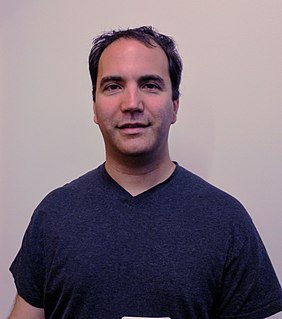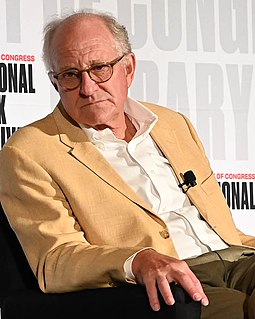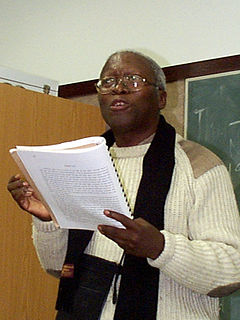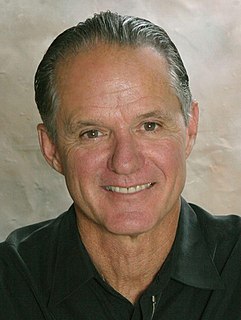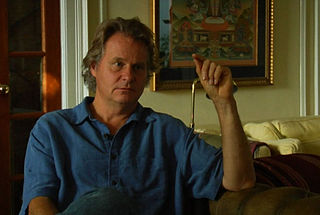Top 875 Technological Quotes & Sayings - Page 12
Explore popular Technological quotes.
Last updated on April 16, 2025.
By virtue of the way it has organized its technological base, contemporary industrial society tends to be totalitarian. For "totalitarian" is not only a terroristic political coordination of society, but also a non-terroristic economic-technical coordination which operates through the manipulation of needs by vested interests.
Designing is not a profession but an attitude. Design has many connotations. It is the organization of materials and processes in the most productive way, in a harmonious balance of all elements necessary for a certain function. It is the intergration of technological, social, and economical requirements, biological necessities, and the psychological effects of materials, shape, color, volume and space. Thinking in relationships.
You know, what I didn't know was how many people in the tech world the original movie had such an impression on. That's really interesting to me because a lot of the people who created this technological revolution that we're all living through were kids when Tron came out, and they saw Tron and it impacted them.
I think markets are mechanisms that determine prices that are necessary for mass heterogenous populations, and markets do generate levels of technological innovation and productivity that is crucial. But when unregulated, they often generate levels of vast inequality and ugly isolation that makes it difficult for people to relate and connect with one another.
I have been working with the World Health Organization since 1989 in an effort to redefine approaches to contraceptive introduction. This has given me the opportunity to insist that strategies for research and policy development must simultaneously address people's needs, the capacity of programs to provide good quality of care, and the range of technological options available.
The average worker in 2015 wanting to attain the average living standard in 1915 could do so by working just 17 weeks a year, one third of the time. But most people don't choose to do that. They are willing to work hard to harvest the technological bounty that is available to them. Material abundance has never eliminated perceived scarcity.
I know when I grew up, it was, if it was daylight outside, get outside. Well, now, with the technological age of computers and everything, everyone's inside virtually going everywhere they want to go, virtually having relationships, virtually traveling across the neighborhood, virtually going to that island.
Futurologists have been multiplying like flies since the day Herman Kahn made Cassandra's profession "scientific," yet somehow not one of them has come out with the clear statement that we have wholly abandoned ourselves to the mercy of technological progress. The roles are now reversed: humanity becomes, for technology, a means, an instrument for achieving a goal unknown and unknowable.
It is possible in theory and I think true in practice that centralization could have been the optimal solution at the beginning of the computer era and now, but not in between. And it may change back again with some other technological development. Some things move in a straight line. Others move like a pendulum.
To make a proper moral appraisal of the prevalence of severe poverty today, we should focus not on comparisons with times past, when the global average income was much lower, but on a comparison with what would be possible in our time, given the current global average income and level of technological and administrative development.
All black people who are even minimally conscious, black people who have ever experienced Europe's technological power crusading in the vanguard of a civilizing mission, have profound feelings of inferiority and bitterly regret the fact that the Industrial Revolution did not agreeably commence in Dahomey or Dakar. Nothing is achieved by concealing this fact.
I find that because of modern technological evolution and our global economy, and as a result of the great increase in population, our world has greatly changed: it has become much smaller. However, our perceptions have not evolved at the same pace; we continue to cling to old national demarcations and the old feelings of 'us' and 'them'.
The answer is navigation, manipulation, and implementation of more sophisticated intelligence. The idea that a robot will become more aware of its environment, that telling it to "go to the kitchen" means something - navigation and understanding of the environment is a robot problem. Those are the technological frontiers of the robotics industry.
I was thinking how strange it is that water is one of the best, simplest things on this planet, and still with a simple glass of water you can neutralize so many of the greatest technological advances that we provide. Like with my blackberry, I can get in touch with so many people, but if I dip it in a small glass of water I'm completely disconnected.
Part of me wanted to disappear into a cave in India, and I did end up going on retreats there, but, don't ask me why, I always felt very strongly that the point for me was to find a way to live a truly spiritual life in the modern day world and be able to work with all the positive aspects of our cultural and technological advancements.
The greatest cost of the specialization of technological life - and out of which all other damages are birthed - is arguably our separation from the practical and enriching sense of ourselves as embodied beings. When we are alienated from the wisdom of the body, our lives become theoretical and abstract, and we are distanced from the direct, felt sense of living.
Every major technological step forward has profoundly changed human society - that's how we know they're major, even if we don't always realise it at the time. Farming created cities. Writing, followed eventually by printing, vastly increased the preservation and transmission of cultural information across time and space.
Web publishing can create common spaces; it all depends on how we, the readers and sometimes the producers, react to technological change. If we sort ourselves into narrow groups, common spaces will be in big trouble. But there's no reason not to have common spaces on the Internet. There are lots of them out there.
There's no doubt that the search for planets is motivated by the search for life. Humans are interested in whether or not life evolves on other planets. We'd especially like to find communicating, technological life, and we look around our own solar system, and we see that of all the planets, there's only one that's inhabited.
If we accept that we are all cut from the same genetic cloth, all cultures share the same genius. And whether that genius is placed into technological wizardry which has been our great achievement, or, by contrast, placed into the unraveling of complex threads of memory inherent in a myth is simply a matter of choice.
No technological achievements can mitigate the disappointment of modern man, his loneliness, his feeling of inferiority, and his fear of war, revolution and terror. Not only has our generation lost faith in Providence but also in man himself, in his institutions and often in those who are nearest to him.
Prosperity in human society is misunderstood. The difference between a rich and poor society is the number of problems that society solves for its citizens. That means technological innovation is the source of all prosperity, but with every tech innovation, you also get disruption - ultimately, social and civic disruption.
The social model of the Bolsheviks failed, as will any model that denies individual rights, intellectual freedom, and freedom of competing political parties. Without these freedoms and rights, there is no motivation for people to work. Such a system cannot be sustained, especially in light of the technological revolution of the information era.
I think the big challenge that we've got on education is making sure that from kindergarten or prekindergarten through your 14th or 15th year of school, or 16th year of school, or 20th year of school, that you are actually learning the kinds of skills that make you competitive and productive in a modern, technological economy.
In most industries, technological change is happening at a rapid rate. I find it is happening in different ways to every industry in the world, and positioning yourself for that, and trying to get ahead of that, is a big conversation right now. Digitization has created opportunities for everybody to accumulate information in a way they were never able to, and analyze it with a speed that just wasn't there.
Never before have people been so infantalized, made so dependant on the machine for everything; as the earth rapidly approaches its extinction due to technology, our souls are shrunk and flattened by its pervasive rule. Any sense of wholeness and freedom can only return by the undoing of the massive division of labour at the heart of technological progress. This is the liberatory project in all its depth.
The real challenge is not to get people to remember more, but to get them to understand better. We're just now beginning to be able to show what we can implement with technological tools. I think our interest at Apple is to be the provider of the instruments that will help educators and students create and entirely new kind of learning than what we have now.
The Singularity denotes an event that will take place in the material world, the inevitable next step in the evolutionary process that started with biological evolution and has extended through human-directed technological evolution. however, it is precisely in the world of matter and energy that we encounter transcendence, a principal connotation of what people refer to as spirituality.
During the last two centuries, there have been many deflations throughout the world. Almost all of them have been good ones precipitated by technological innovation, rising productivity, global capital flows, and sustained economic growth. If farm mechanization cuts the price of wheat, you get a rising living standard. This is good.
Science fiction [is] the kind of writing that prepares us for the necessary mutations brought about in society from an ever changing technological world and as a result. The mainstream hasn’t excluded SF; the mainstream has excluded itself. No one told Jules Verne he was a science fiction writer, but he invented the 20th century.
Television screens saturated with commercials promote the utopian and childish idea that all problems have fast, simple, and technological solutions. You must banish from your mind the naive but commonplace notion that commercials are about products. They are about products in the same sense that the story of Jonah is about the anatomy of whales.
It's frustrating sometimes to see the mismatch in resources between the pointless and the urgent, isn't it. Like the gap between the vast resources poured into military technological research to make war more sophisticated, and the trickle that goes into developing techniques that might prevent war instead.
For so long, companies were run using a command-and-control, 'top down' hierarchical method that involved dictating down the command chain and maintaining order. What I've witnessed in our time is evolving democratization, a shift to a demand economy accelerated by technological advancements like social media.
the society which projects and undertakes the technological transformation of nature alters the base of domination by gradually replacing personal dependence (of the slave on the master, the serf on the lord of the manor, the lord on the donor of the fief, etc.) with dependence on the "objective order of things" (on economic laws, the market etc.).
If you could map out a human brain, an open question is, if you simulated it, would it be you? Now, as we discussed earlier, we don't have a great definition or even a good technological handle to know whether something is conscious or not just by looking at it, so there's that aspect that we're not ready to answer, I would argue. But it raises very interesting questions about the nature of identity.
I would say that, in the future, the book will be reserved for things that function best as a book. So, if I need a textbook that's going to be out of date because of new technological inventions, you're better off having it where you can download the supplements or the update. If you're going to read a quick mystery novel to keep you amused while you're traveling, it's fine.
What's interesting about the shift from an industrial age to a technological age is that we keep inventing new media: movies, records, radio, television, the Internet, and now ebooks - and one of the things that's most interesting about the invention of a new medium is watching it reinvent itself as it penetrates the culture.
The fundamental problem is that the gap in educational achievement, which is a key in our technological economy, is due in my opinion - and the opinion of many, including Arne Duncan, our secretary of education - to the fact that the families of the poor who are not very educated are not talking to their children, interacting with their children, insisting they do their homework and so on.
It's clearly a crisis of two things: of consciousness and conditioning. We have the technological power, the engineering skills to save our planet, to cure disease, to feed the hungry, to end war; But we lack the intellectual vision, the ability to change our minds. We must decondition ourselves from 10,000 years of bad behavior. And, it's not easy.
Today with technological advancement, with the Internet, with planes, with the rate at which we travel - even if you wanted, you cannot hide from the rest of the world. And whether you like it or not, you are part of this global marketplace, and so you might as well understand it, you might as well embrace it, because even if you hide, it will find you.
By all indications, American business leaders are more adept at creating business strategies than they are skilled at human capital management. American entrepreneurs are world-beaters when it comes to creating new businesses, and corporate managers are adept at using the latest marketing, financial, and technological practices.
The function of entrepreneurs is to reform or revolutionize the pattern of production by exploiting an invention or, more generally, an untried technological possibility for producing a new commodity or producing an old one in a new way, by opening up a new source of supply of materials or a new outlet for products, by reorganizing an industry and so on.

